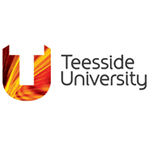
About the course
Course overview
Network technologies are constantly evolving and underpin almost everything we do. This degree provides a hands-on approach and strong emphasis on network infrastructure, particularly how you can create and manage secure networks.
You study a curriculum that meets the growing needs of industry and this course has been developed with input from leading international providers and local businesses. You can be part of the next generation of network and security graduates to support and enhance the world economy – whether that be through social developments, medical systems, education, financial institutions or heavy industry.You explore a range of different network platforms and learn about their applications: how different network architectures are used in industry; network convergence; how to deliver excellent server administration and enterprise server management; investigation of mobile services; implementing network virtualisation and virtual network security; and understanding the needs of specialist networks such as automotive, robotic and sensor networks.There may also be the opportunity to achieve Cisco certification during the first two years of your course.
The computer security element of this course starts with an investigation into data collection and the inherent security, ethical, legal, social and professional issues. You also study information security management principles including security for cloud-based systems, before studying advanced security techniques in your final year.
How you learn
You attend a combination of lectures and practical sessions for each module. Lectures concentrate on teaching the principles while practical sessions allow you to put these principles into practice in purpose built labs. Throughout your practical sessions you receive feedback on your work and progress. You often work on a piece of work for several weeks building a deeper understanding of the subject as you work. The feedback you receive will help you to get the most out of your learning.
In your final year you also undertake a personal project which integrates much of the work you have studied in previous years.
How you are assessed
A variety of assessment methods are used. Your assessments are designed to build on the work you undertake in class, because your learning continues through the assessment period. An in-course assessment often consists of a practical exercise and an associated report helping you to develop both technical and business skills.
Our Disability Services team provide an inclusive and empowering learning environment and have specialist staff to support disabled students access any additional tailored resources needed. If you have a specific learning difficulty, mental health condition, autism, sensory impairment, chronic health condition or any other disability please contact a Disability Services as early as possible.
Entry requirements
Call us on 0800 952 0226 about our entry requirements
For additional information please see our entry requirements
International applicants can find out what qualifications they need by visiting Your Country
You can gain considerable knowledge from work, volunteering and life. Under recognition of prior learning (RPL) you may be awarded credit for this which can be credited towards the course you want to study.
Career opportunities
Our computing students go into a wide range of careers, both nationally and globally. Graduates have gone on to work in a range of industries including the power industry, avionics and the pharmaceutical industry.
Professional placement
During your degree we advertise a variety of paid placement opportunities (subject to availability). You can apply for a year-long supervised work placement between your second and final year. A placement gives you a valuable opportunity to improve your employment prospects by developing new skills and deepening your understanding of your subject.
Student selection is carried out by the employers through competitive interviews and often skills tests. Placements are not compulsory but are assessed and contribute to your final degree award.
Our placements team gives you help and support throughout the placement process, including guidance on applications and interviews, to help you get a placement that suits you.
Our students have been placed in organisations such as IBM, Microsoft, SABIC Petrochemicals and Thomson Reuters.